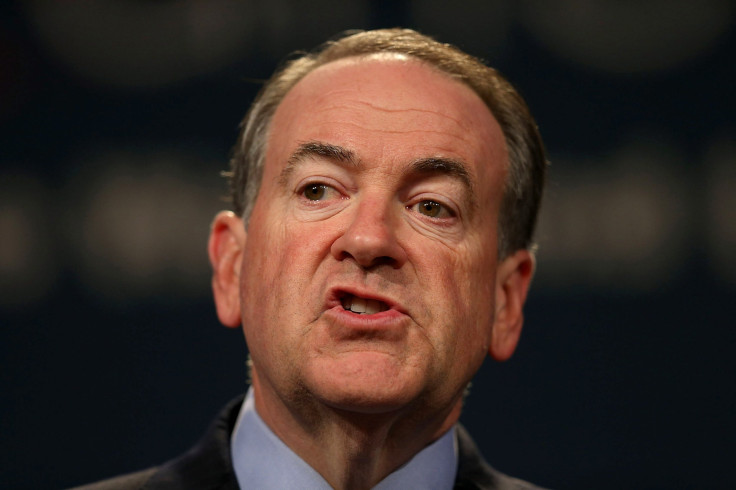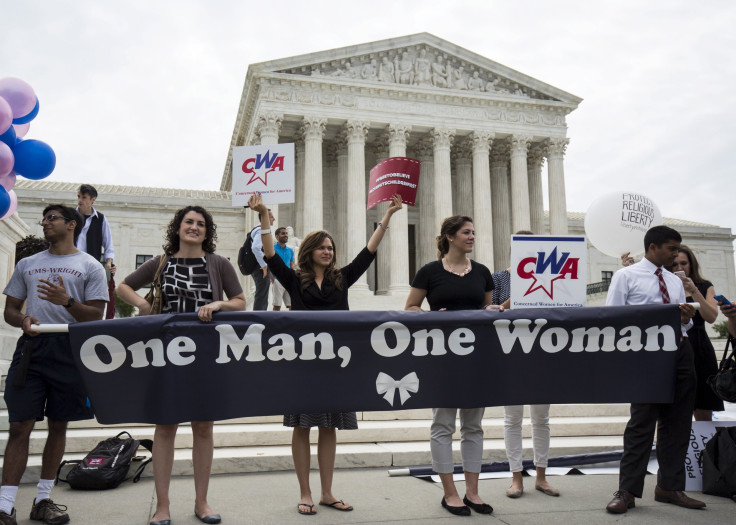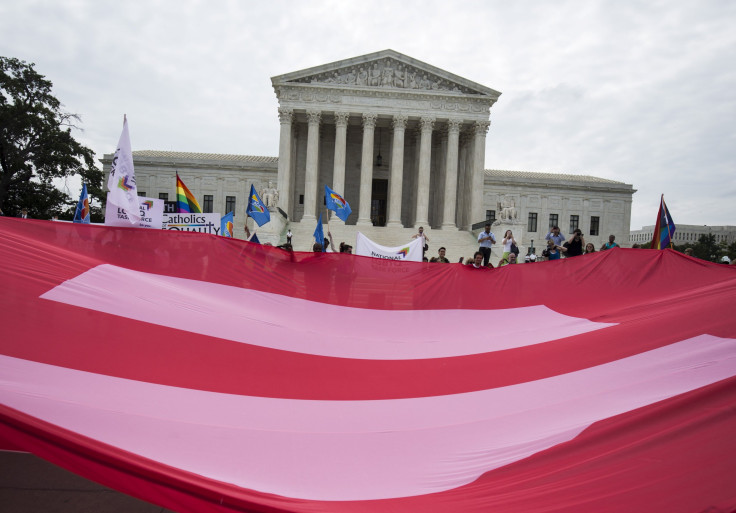Election 2016: Will Gay Marriage Still Be A Campaign Issue?

WASHINGTON -- The Supreme Court’s decision to deliver a sweeping victory to gay rights advocates is likely to result in a quiet push from within the Republican Party: Stop talking about gay marriage. It's an issue that has been a no-win for Republicans -- along with several other social issues -- and many in the GOP see the decision as way to get their members to focus on other, more successful messages.
But just because many in the GOP are hoping the decision in Obergefell vs. Hodges would make Republicans stop talking about gay marriage, it doesn't mean they’re going to succeed. For those running for president who hold staunchly conservative social stances, this is likely to be more of a rallying cry than a reason to wave a white flag.
“I will not acquiesce to an imperial court any more than our Founders acquiesced to an imperial British monarch. We must resist and reject judicial tyranny, not retreat,” former Arkansas Gov. Mike Huckabee said. “The only outcome worse than this flawed, failed decision would be for the President and Congress, two co-equal branches of government, to surrender in the face of this out-of-control act of unconstitutional, judicial tyranny. The Supreme Court can no more repeal the laws of nature and nature's God on marriage than it can the laws of gravity.”
For those in the GOP who were secretly cheering for the court to legalize gay marriage across the country, the decision disengages pro-marriage forces in the coming election. With the issue settled by the courts, Republican strategists say they are hopeful that gay rights activists will be less inclined to rally their troops on Election Day. It could also mean some one-issue voters may give the GOP another look.
One sign that Republicans weren’t as ready to jump into the fray on the fight was the speed in which they responded to the court’s decision. On Thursday, when the Supreme Court ruled in favor of upholding the Affordable Care Act, the candidates for president posted angry responses on Facebook and other social media sites within minutes. On Friday, when the court ruled to legalize gay marriage, it was almost silence.

Washington Republicans have quietly hoped that the field of candidates would just opt not to talk about gay marriage. Former Florida Gov. Jeb Bush once seemed on track to use that playbook, saying after the court ruled to legalize marriage in Florida that the decision was made and there was little he could do to change it.
But whether that is a path Bush or any of the other Republican hopefuls choose to take remains unclear. Bush has backed away from that position, becoming more strident in saying he thinks protections need to be made for those who oppose same-sex marriage.
“In a country like ours, we should recognize the power of a man and a woman loving their children with all their soul as a good thing, as something positive and helpful for those children to live successful lives,” Bush said at a conference of conservative, religious voters in June. “And while there are people who disagree with this, we should not push aside those who do believe in traditional marriage. I for one believe it’s important and I think it’s got to be important over the long haul, irrespective of what the courts say.”
There is little doubt the Republican candidates will continue to talk about “religious liberty," a term that has becoming increasingly common in the gay marriage debate. Republicans are ferociously arguing that the political left is reducing the ability for Christians to practice their religion. It’s a point that the entire GOP field has embraced.
After the ruling came down, Bush argued for religious freedom. “Guided by my faith, I believe in traditional marriage,” Bush said in a statement. “I believe the Supreme Court should have allowed the states to make this decision. I also believe that we should love our neighbor and respect others, including those making lifetime commitments. In a country as diverse as ours, good people who have opposing views should be able to live side by side. It is now crucial that as a country we protect religious freedom and the right of conscience and also not discriminate.”

What is more likely to determine whether gay marriage becomes a central issue in the 2016 campaign are the conservatives who have already offered outspoken opposition to the court granting marital status to such unions. If conservative groups sink millions of dollars into criticizing those candidates who don't back a constitutional amendment defining marriage traditionally or are viewed as being too accepting of the court's ruling, it could make gay marriage a more prominent campaign issue.
Ted Cruz, R-Texas, has been one of the most vocal critics of the court’s ruling in the runup to the decision becoming public. At a conference last week, Cruz described a decision to legalize gay marriage as “an act of naked and lawless judicial activism, tearing down the marriage laws adopted pursuant to the Constitution.” And Rick Santorum, former Pennsylvania senator, and Huckabee -- both who are struggling to get a foothold in the polls -- are also likely to try to capitalize on the decision. Both have been staunch social conservatives who have used the issue to try to rally support.
The National Organization for Marriage (NOM), a conservative group that opposes same-sex unions, is pushing 2016 candidates to sign a “marriage pledge.”
“It is critical that the next President of the United States be a champion for marriage and commit to take specific actions needed to preserve marriage and restore a vibrant marriage culture in America,” the group writes in its pledge. In 2012, most of the candidates signed on to NOM’s pledge.
© Copyright IBTimes 2025. All rights reserved.






















